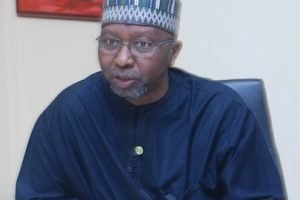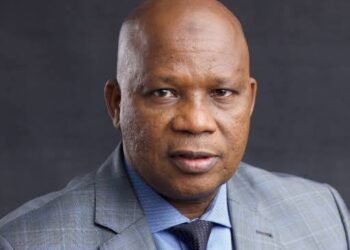Opinion | By Okanga Agila | 14. 02. 2022
The Nigeria Incentive-Based Risk Sharing System for Agricultural Lending (NIRSAL) does not ring a bell. I can guess that many would struggle to understand what NIRSAL stands for. This is understandable, though, given the agency’s mandate that stimulates the flow of affordable finance and investments into the agricultural sector by de-risking the agriculture & agribusiness finance value chain, fixing agricultural value chains, building long-term capacity, and institutionalizing incentives for agricultural lending.
NIRSAL is a US$500million Non-Bank Financial Institution wholly owned by the Central Bank of Nigeria (CBN) created to redefine, dimension, measure, Re-Price and Share agribusiness-related credit risks in Nigeria. It was established in collaboration with the Federal Ministry of Agriculture and Rural Development and the Nigerian Bankers Committee in 2013.
Since its establishment, NIRSAL has not relented in achieving its mandate, which has been more pronounced in the last six years. For example, NIRSAL has provided over N128 billion in loans for agriculture and agribusiness across the country in the last ten years.
According to the Managing Director of NIRSAL, Mr Aliyu Abdulhameed, this considerable investment translates to creating jobs, driving the growth of rural economies, and positively impacting Nigerian lives. This is apt and an indication of the tangible contributions of NIRSAL in the socio-economic development of Nigeria.
I recall that sometime in 2021, in a bid to ensure that Nigeria earns substantial foreign exchange from cocoa – its flagship export crop and impact farmers livelihoods, NIRSAL provided ADT Russet Limited with a 50 percent Credit Risk Guarantee (CRG) on a working capital facility of N1.15 billion from Keystone Bank for cocoa export. Apart from absorbing 50 percent of the risk exposure in loan delinquency, NIRSAL is also providing efficient monitoring of the project, which aims to boost ADT Russet’s export volume to 4,000MT yearly.
It must be stated that through the ADT Russet support, NIRSAL is creating a more robust market for smallholder cocoa farmers and positively impacting their livelihoods. This is on the heels that NIRSAL has provided similar support to another cocoa processing and exporting company in Ondo State – South-west Nigeria, and the 50 percent CRG for ADT Russet is just one of the 748 projects NIRSAL has guaranteed across Nigeria.
In a statement credited to the managing director of the organization, Mr Aliyu Abdulhameed, he stated that the organization had guaranteed projects to the tune of about $648million in the last five years, and all the projects are performing with an NPL of less than one percent. He further explained that NIRSAL operations cover 18 commodities beyond the crop, livestock, poultry, and fishery sub-sectors beyond cocoa.
In a similar vein, NIRSAL, in collaboration with Successory Nigeria Limited and MTN Nigeria, launched the NIRSAL Farmers’ Business School (NFBS). This mobile learning platform is based on Interactive Voice Response (IVR) technology. The initiative is to offer farmers leverage to increase their productivity through advisory services provided by experts through communication and the provision of information concerning markets and stocks.
During interactions at the launch of the NFBS, the managing director of NIRSAL, Mr Aliyu Abdulhameed, allayed concerns that the platform might be too sophisticated and expensive for some rural farmers to use. He stated that at N100 per week, a subscriber could access all the courses and assessments due to them and at their own pace. A N50 fee would apply to access additional market opportunities, weather forecasts/updates, and special deals. At the same time, with N20 only, subscribers could procure step-by-step guidance on specific farm activities such as pest control and fertilizer application.
NIRSAL also recently completed the training and mentorship of 780 farmers and other agricultural value chain players to achieve food sufficiency. NIRSAL said the training programmes held in the six geo-political zones are a continuation of efforts targeted at de-risking the agricultural value chain to encourage more investment in agribusiness by the financial sector.
The training sessions focused on 10 Commodities of Interest (COI) with ecological and economic advantages in each region. The commodities include rice, ginger, maize, Fresh Fruit and Vegetables (FFV), cassava, beans, aquaculture, oil palm, livestock and cotton.
In all of these interventions in the agribusiness sector in Nigeria, the managing director of NIRSAL, Mr Aliyu Abdulhameed, has been exceptional in leading the organization in good stead in making tangible contributions in the development of the critical agricultural sector in the country.
However, this is not surprising given the exceptional track record of Mr Aliyu Abdulhameed, an agricultural economist of repute who has energized the institution and achieved important milestones that have provided a strong foundation for realizing NIRSAL’s unique vision of transforming the agriculture sector through de-risking the agricultural value chain.
Under his watch, NIRSAL has attracted the attention of respected global players in the agriculture sector, including the African Development Bank (ADB), United Nations Industrial Development Organization (UNIDO), and United States Agency for International Development (USAID), and the Global Alliance for Improved Nutrition (GAIN). It is also on record that as a staff of Kewalrams Afcot Group, pioneer backward integrators in the Cotton Textile Garment (CTG) value chain, he was part of the team that was instrumental to the creation of Olam, the no one global commodity trader which links end to end value chains from primary production to industrial users of globally traded agric commodities.
It was, therefore, not surprising that he emerged winner of the prestigious CEO Today Magazine Global Award 2021 in recognition of his outstanding contributions to Agriculture and Agribusiness in Nigeria. Consequently, the award for innovative leadership is therefore well deserved because, at NIRSAL, Mr Aliyu Abdulhameed is showcasing skills and experience spanning across a wide range of areas including, agricultural value chain development, agricultural value chain finance, research and innovation, extension services, agribusiness development, product marketing, strategy, project management as well as agricultural policy analysis and advocacy.
It is expected that such individuals are encouraged to continue to do their best in service to the country. Mr Aliyu Abdulhameed has been exceptional and deserving of commendation.
•Okanga wrote this piece from Agila, Benue State




